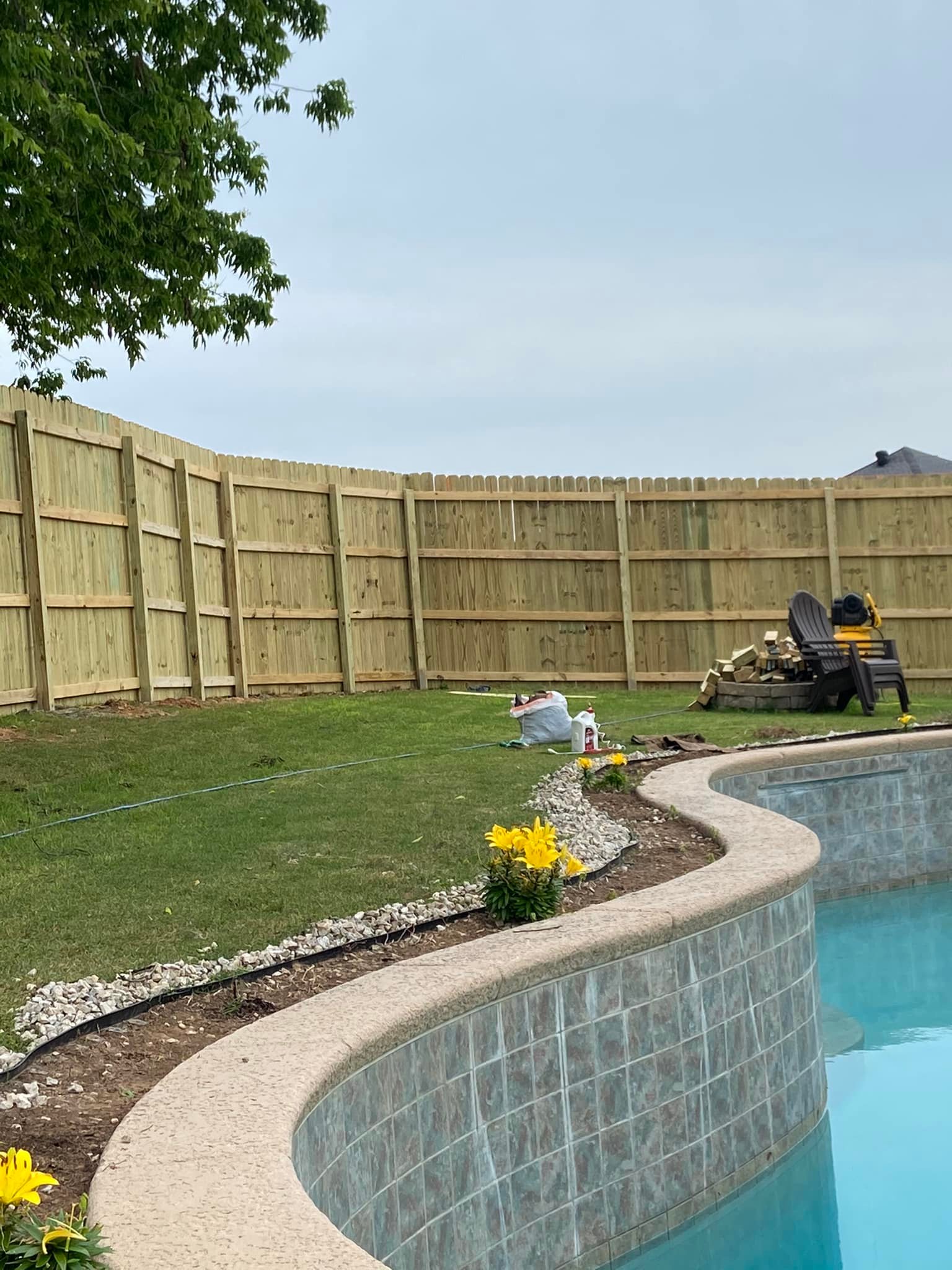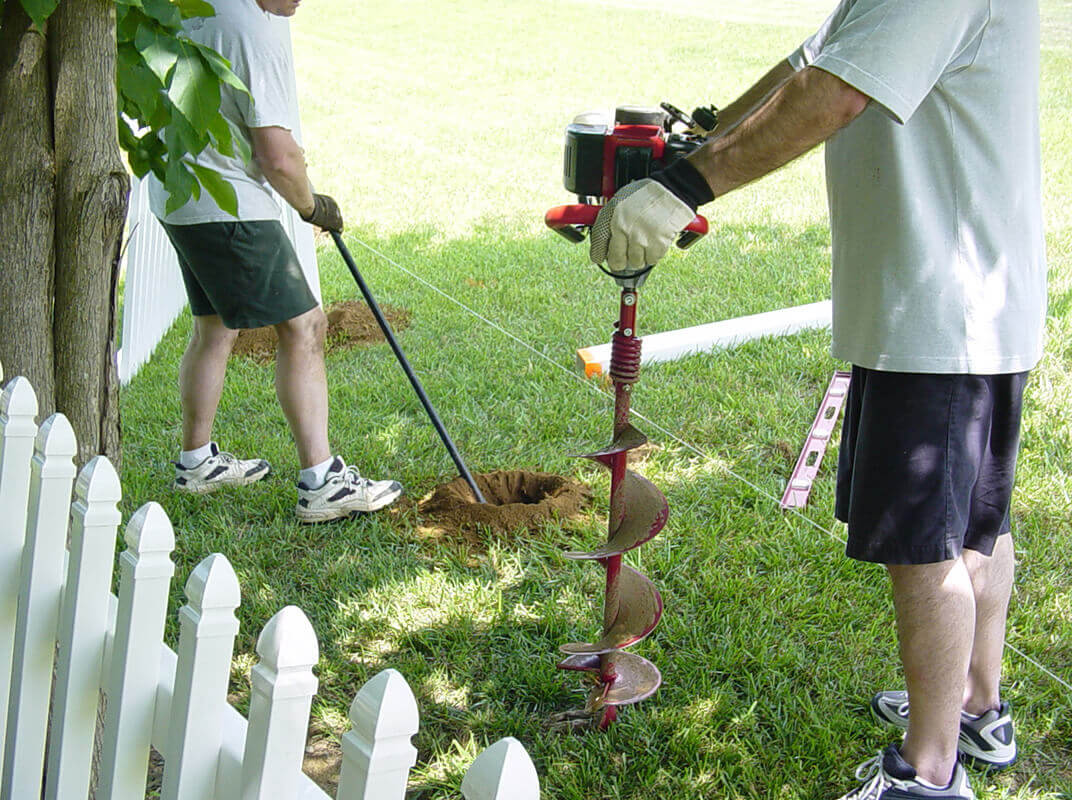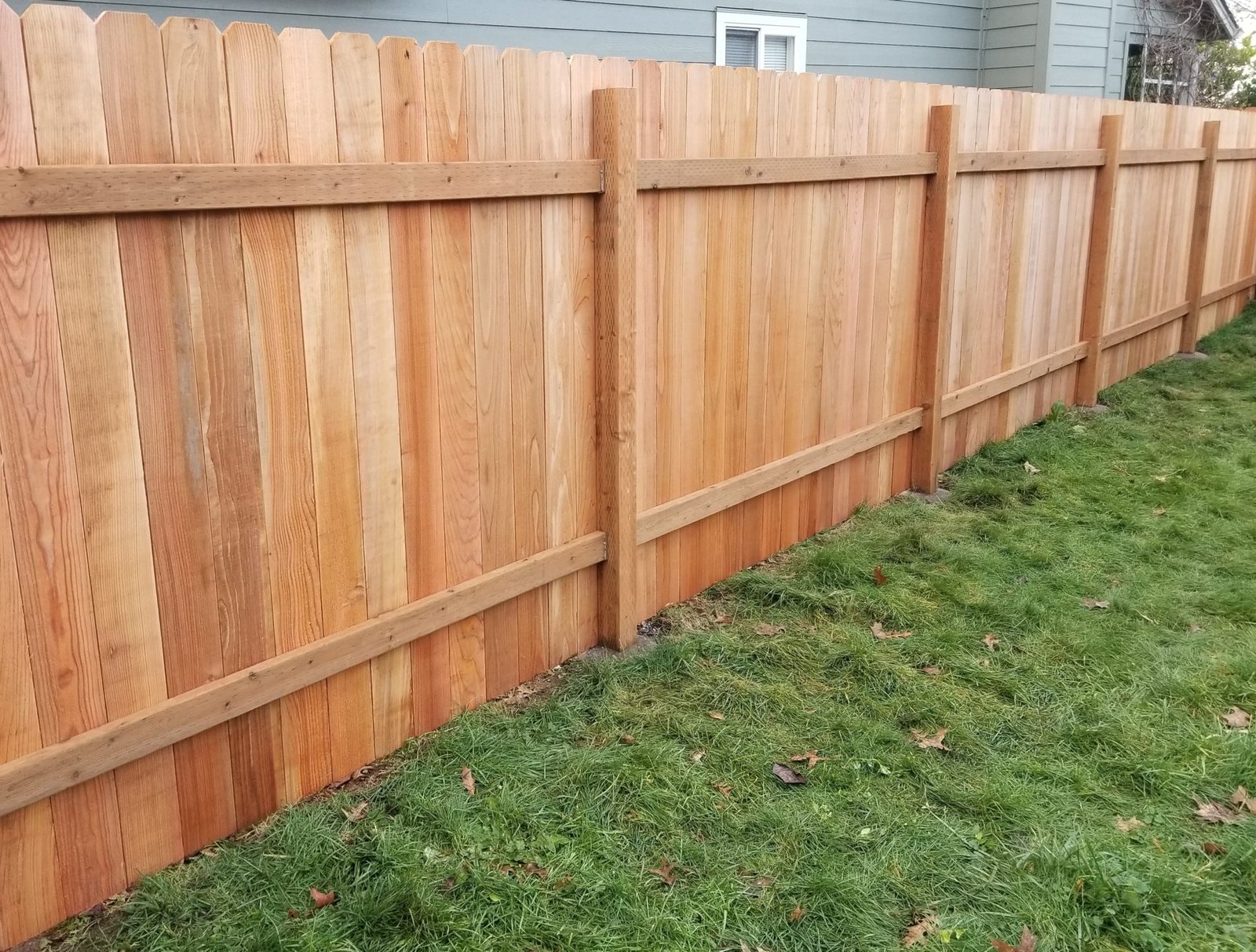Step-by-Step Overview to Setting Up a Wood Fence for Your Home or Residential Or Commercial Property
Installing a wood fence can dramatically enhance both the functionality and visual appeal of your residential or commercial property. Comprehending these actions not just makes sure a strong setup however additionally adds to long-lasting fulfillment.
Planning Your Fence Installment
When starting the installment of a timber fencing, cautious planning is necessary to make certain an effective end result. Begin by analyzing the objective of the fencing-- whether it is for personal privacy, safety and security, or looks-- since this will certainly influence the layout and layout. Next, review the residential or commercial property lines, making sure to verify the boundaries with a survey or title deed to avoid disputes with neighbors.
Think about regional zoning homeowners and regulations' organization standards, as these may dictate fencing elevation, style, and materials. It is recommended to acquire the needed authorizations before starting work, as this can prevent lawful issues later on.
Additionally, consider the terrain and dirt problems of your property. Irregular ground might require extra changes throughout setup, while rough dirt could necessitate specific tools.
Last but not least, create a detailed strategy that consists of measurements, the number of posts, and the spacing between them. A clear design will certainly facilitate the setup procedure and make certain that you have all required products accessible. By adhering to these planning steps, you can establish a strong foundation for a successful timber fence setup.
Picking the Right Products
Selecting the ideal products for your timber fencing is critical to ensuring durability and aesthetic allure. The most common kinds of wood made use of for fence include cedar, redwood, and pressure-treated yearn.
Pressure-treated yearn is an additional preferred choice, as it is often much more budget friendly. However, it needs regular upkeep and treatment to prolong its life-span. When choosing timber, think about the climate of your area; for instance, areas with high humidity might gain from wood varieties with higher resistance to wetness.
Additionally, you need to examine the fence design and function. A picket fence may require different material specs contrasted to a privacy fence. Decide for thicker boards for architectural integrity, particularly in high-wind areas. Finally, think about the finish; unattended timber might need discoloration or sealing to shield against weather components. By very carefully selecting your materials, you can make certain that your wood fence will stand the test of time while matching your home's landscape.
Preparing the Installation Site

Preparing the installment site is a crucial action in making sure the effective construction of your timber fencing. Correct prep work not only assists in a smoother installation process yet also adds to the durability and stability of the fencing.

If your website has unequal ground, consider leveling it or changing your fence layout accordingly. This is necessary to avoid damage during setup and guarantee safety.
Setting Up the Fence Blog Posts

Following, dig holes for every article, guaranteeing they are deep sufficient-- generally one-third the height of the article above ground-- to offer security. A deepness of at the very least 2 feet is a good idea for most fences. The diameter of the openings should be roughly 3 times the size of the articles.
As soon as your openings are ready, area each article upright right into the marked hole. Use a degree to ensure they are plumb, adjusting as required. After positioning, fill the holes with concrete mix or stuffed dirt for included support. Enable the Read Full Report concrete to treat according to the producer's directions, normally 24 to 2 days. Appropriately set up blog posts are crucial for keeping the architectural stability of the fencing, guaranteeing it stays upright and safe versus environmental anxieties.

Adding Fence Panels and Completing Touches
As soon as the fencing articles are securely set, the next action involves affixing the fence panels, which will define the limits of your home. Begin by positioning each panel between the articles, guaranteeing they are level and straightened. Use a level tool to check that the panels are directly; this will guarantee an expert finish. For optimal security, secure each panel to the articles using galvanized screws or nails, which stand up to corrosion and corrosion.
After all panels are attached, inspect the entire fencing for any type of gaps or imbalances. Make changes as necessary to guarantee a consistent appearance.
Additionally, using a protective sealant or tarnish will boost the wood's sturdiness against climate aspects, prolonging the life of your fencing. With these steps, your wood fencing will not just offer its purpose efficiently but also boost the general allure of your building.
Final Thought
In verdict, the successful setup of a wood fence needs cautious planning, option of appropriate materials, complete website prep work, and specific implementation try this website of installment techniques. Appropriate maintenance post-installation better extends the life and look of the timber fencing.
When embarking on the installation of a wood fencing, mindful planning is essential to make certain an effective end result.Selecting the ideal materials for your timber fencing is critical to making sure toughness and visual allure. A picket fencing might require different product specs contrasted to a personal privacy fencing.With the installation website appropriately prepared, the following step includes establishing the fencing articles, which serve as the foundation of your timber fence.Once the fencing messages are securely set, the following action includes attaching the fence panels, which will certainly define the borders of your residential or commercial property.